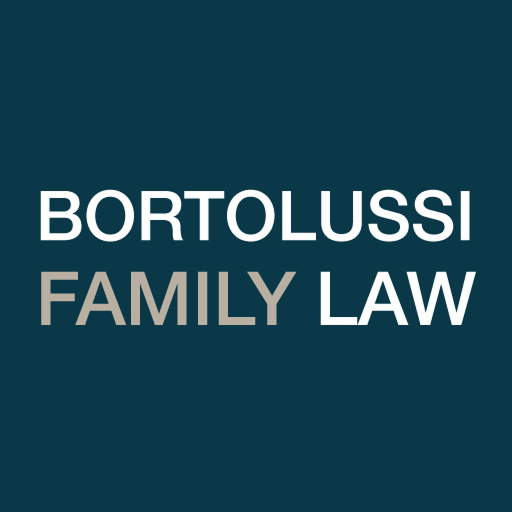What is Parental Alienation and How is Parental Alienation Defined in Ontario?

The term “parental alienation” was originally coined by American child psychologist Richard Warshak in the 1970s. The term describes various controlling, manipulating, and brainwashing behaviours separating parents can engage in to put emotional and physical distance between a child and the other parent. The behaviours are generally carried out over a period of time, creating an “active but unjustified campaign of denigration against the other parent”.
The umbrella of parental alienation, includes indicia such as:
- Overtly and repeatedly speaking negatively about the other parent to the child.
- Preventing communication between the child and the other parent.
- Regularly interrupting and monopolizing a child’s time with the other parent. For example, by calling or texting the child repeatedly and unnecessarily while spending time with the other parent.
- Keeping important information relating to the child from the other parent, such as medical information, meaningful social issues, or education information, such as report cards.
- Gossiping with the child about the other parent or asking the child to report to them about the other parent’s life or relationships.
- Interfering with or bending the rules with respect to parenting time. The alienating parent may regularly arrive early or late to pick up or drop off the child or may “forget” about pre-arranged plans on a regular basis.
Parental Alienation & the Impact on Children
Children who are subjected to long-term campaigns by one parent against the other may suffer emotional and psychological damage that can last well into adulthood. Some psychologists have referred to the effects of alienation as “parental alienation syndrome.” However, the syndrome is not a recognized psychological condition in the Diagnostic and Statistical Manual of Mental Disorders (DSM-V), the standard diagnostic tool used by psychologists and psychiatrists in North America.
Both the DSM-V and the international diagnostic tool maintained by the World Health Organization recognize broader classifications under which parental alienation syndrome could fall. The DSM-V recognizes a “child affected by parental relationship distress” while the World Health Organization recognizes “caregiver-child relationship problems.” Both have seemed to recognize the term “parental alienation” as a legal term sometimes used in family law rather than a medical term.
Parental Alienation Can Impact the Child into Adulthood
Despite the lack of specific medical recognition, it is not disputed that children exposed to prolonged adversarial parental relationships can experience corresponding effects on their emotional, cognitive, and behavioural wellbeing. One study published in 2016 surveyed college-aged people about their childhood experiences with parents exhibiting alienating behaviours, and found that a high number of participants exhibit similar traits into early adulthood, including:
- Increased anger
- Heightened feelings of neglect
- Lack of empathy for others
- Passing on similar destructive behaviours to children
- Lying about others
In addition, parental alienation can permanently impact a relationship between the child and the alienated parent. If the alienation carries on for long enough, the child can develop long-lasting negative feelings which may be irreparable. For this reason, it is important to address alienating behaviour as soon as possible.
Legal Repercussions and Recourse for Parental Alienation
Family courts in Canada have long recognized the harm caused by alienating behaviour on children and have worked to address it to the best of their ability. One of the ways legislators and courts have attempted to address this issue is by centering family law matters on the best interests of the children. In all parenting matters, the emotional, mental, and physical wellbeing of the child is the paramount consideration when determining issues such as parenting time, access, and decision-making. This was made an even greater focus when the federal Divorce Act was amended in 2021, making a child’s best interests the only consideration in all parental and contact decisions.
In cases where it is clear that a parent is engaging in alienating behaviours, a court may intervene in several ways. Experts, such as child psychologists, may be retained to ascertain the validity of allegations of parental alienation, and/or determine how these behaviours have impacted the child. A court may order family members to participate in therapy together or separately.
If a court determines that one parent is persistent in engaging in alienating behaviour, the court can take various steps to reprimand the alienating parent or attempt to limit their ability to engage in the behaviour. A judge may order supervised access, issue fines against the parent, or even remove that parent’s access altogether in extreme situations.
Of course, it is also possible that a parent may make allegations of alienation in order to influence court proceedings. By making a child’s best interests the sole factor in deciding on parenting arrangements, the hope is that courts are better able to get to the root of family dysfunction and identify the best possible scenario when it comes to parental contact with a child.
Contact the Divorce Lawyers at Bortolussi Family Law in Vaughan for Parenting Time and Access Disputes
At Bortolussi Family Law, our divorce lawyers have over 145 years of combined experience helping clients to navigate parental disputes, including parenting time and access issues. We work to find the best solution for each client’s family to help them move forward productively post-separation, with their child’s best interests in mind.
From our office in Woodbridge, we assist clients from across the Greater Toronto Area with all aspects of the separation and divorce process including parenting time, parental decision-making, and the creation of comprehensive parenting plans. To discuss your circumstances and learn about the options available to you, please reach out to us online or by phone at 416-987-3300.
